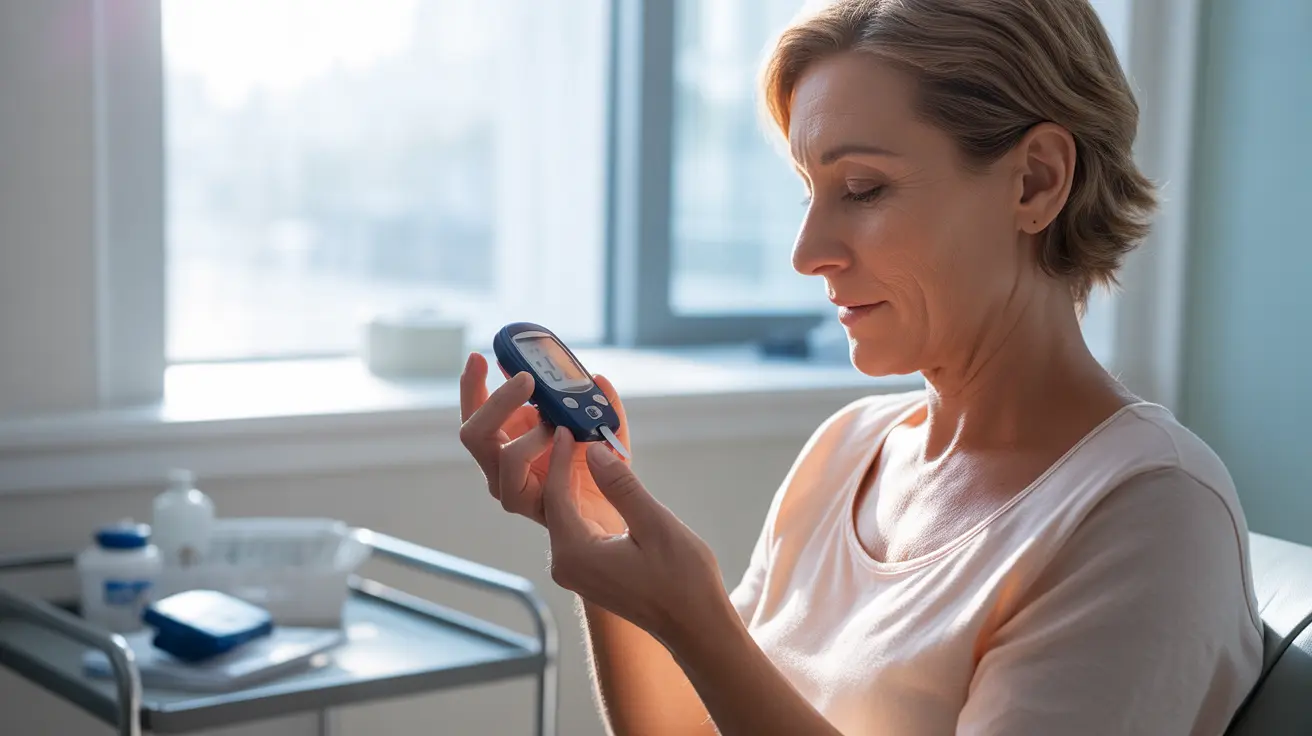Going through chemotherapy while managing blood sugar levels presents unique challenges for cancer patients, especially those with diabetes. Understanding how cancer treatments affect blood sugar and knowing effective management strategies is crucial for maintaining optimal health during this critical time.
This comprehensive guide explores the relationship between chemotherapy and blood sugar control, offering practical strategies to help patients and caregivers navigate this complex aspect of cancer treatment.
How Chemotherapy and Steroids Impact Blood Sugar
Chemotherapy treatments often include corticosteroids, which can significantly affect blood sugar levels. These medications may cause temporary insulin resistance and increase glucose production in the liver, leading to elevated blood sugar readings.
Common effects include:
- Increased blood sugar levels, particularly after steroid administration
- Greater insulin resistance
- More frequent blood sugar fluctuations
- Potentially unstable readings throughout treatment cycles
Monitoring Blood Sugar During Cancer Treatment
Careful monitoring becomes especially important during chemotherapy. Patients should work with their healthcare team to establish an appropriate testing schedule based on their individual treatment plan.
Recommended Monitoring Practices
- Check blood sugar levels more frequently during treatment days
- Keep detailed logs of readings, meals, and medication times
- Document any unusual symptoms or side effects
- Share monitoring records with both oncology and diabetes care teams
Medication Management Strategies
Cancer treatment may require adjustments to existing diabetes management plans. Working closely with healthcare providers is essential to maintain appropriate medication dosing.
Key Considerations for Medication Adjustments
- Regular review of insulin or diabetes medication doses
- Potential temporary changes during treatment cycles
- Development of specific plans for treatment days
- Clear communication between all healthcare providers
Dietary Approaches During Treatment
Managing nutrition during chemotherapy can be challenging, especially when dealing with side effects like nausea. However, maintaining stable blood sugar levels through proper nutrition remains crucial.
Practical Dietary Tips
- Keep easily digestible, carbohydrate-controlled snacks available
- Choose foods that help combat nausea while supporting blood sugar control
- Stay hydrated with sugar-free beverages
- Work with a registered dietitian familiar with both cancer and diabetes management
When to Seek Immediate Medical Help
Understanding when to contact healthcare providers about blood sugar concerns during chemotherapy is vital. Some situations require prompt medical attention.
Emergency Warning Signs
- Blood sugar readings above 300 mg/dL or below 70 mg/dL
- Persistent nausea affecting ability to eat or take medications
- Signs of dehydration
- Unusual fatigue or confusion
Frequently Asked Questions
Q: How can chemotherapy and steroid medications affect blood sugar levels during cancer treatment? A: Chemotherapy, particularly when combined with steroids, can cause significant blood sugar elevations by increasing insulin resistance and liver glucose production. These effects may be temporary but require careful monitoring and management throughout treatment.
Q: What are the best ways to monitor and manage blood sugar fluctuations while undergoing chemotherapy? A: The best approaches include frequent blood sugar testing, maintaining detailed logs of readings and symptoms, working closely with healthcare providers, and adjusting management strategies based on treatment schedules and individual responses.
Q: How should diabetes medications or insulin doses be adjusted during chemotherapy to maintain stable blood sugar? A: Medication adjustments should be made under medical supervision, with potential modifications to insulin or diabetes medication doses based on treatment cycles, steroid use, and individual blood sugar patterns.
Q: What dietary and lifestyle changes can help control blood sugar when experiencing chemotherapy side effects like nausea? A: Focus on maintaining regular, small meals with controlled carbohydrate content, staying hydrated, keeping easily digestible snacks available, and working with a dietitian to develop strategies for managing both nutrition and blood sugar during treatment.
Q: When should patients with diabetes undergoing chemotherapy seek medical help for abnormal blood sugar readings? A: Seek immediate medical attention for blood sugar readings above 300 mg/dL or below 70 mg/dL, persistent nausea affecting medication or food intake, signs of dehydration, or unusual fatigue and confusion.




